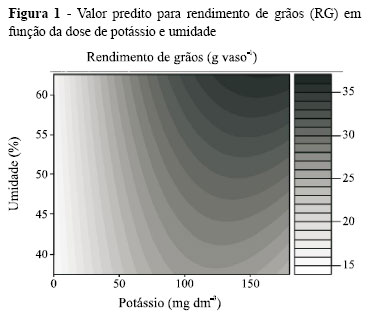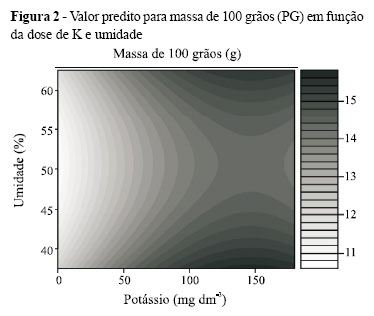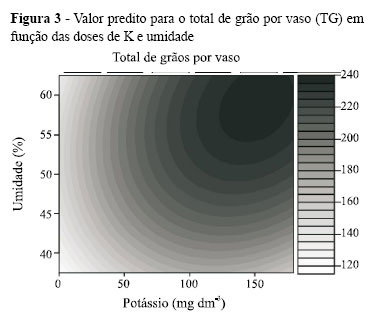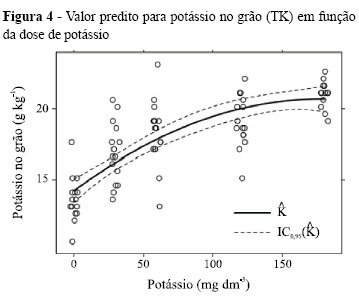The tropical soils, usually poor in potassium (K), demand potassium fertilization when cultivated with soybean (Glycine max L.) to obtain satisfactory yields. The aim of this study was to evaluate the effects of K doses and soil humidity levels on soybean agronomic characteristics. The experiment was carried out in a greenhouse, in pots with two plants, containing 5 dm³ of soil. The experimental design was completely randomized block with treatments in a 5 x 3 factorial arrangement. The K doses were 0; 30; 60, 120 and 180 mg dm-3, and the soil humidity ranged from 35 to 40; 47.5 to 52.5; and 60 to 65% of the total porosity. The characteristics appraised were: grain yield, weight of a hundred grains, total number of grains per pot, K level in the grain, number of viable pods. There was soybean response to the potassium fertilization, with increase of the grain yield, mass of a hundred grains, K level in the grain and number of viable pods. The grain total per pot reached maximum value in combination of the upper limits of each study factor. The K reduced the water deficit effects on the soybean.
Glycine max; Potassium; Soil-humidity

 Soil moisture and potassium doses on soybean culture
Soil moisture and potassium doses on soybean culture





